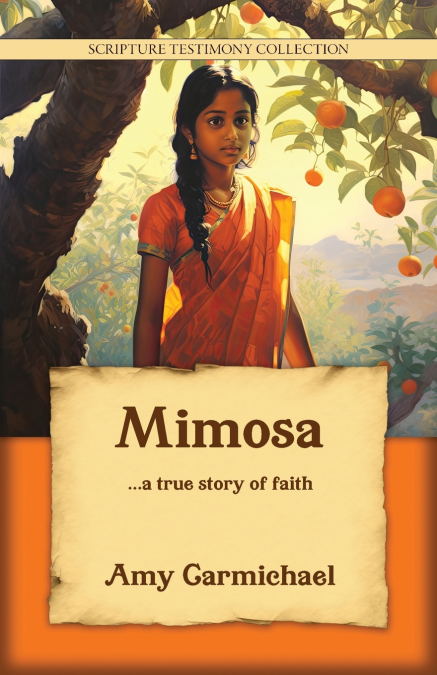
Amy Carmichael
This little book tells a highly unusual story. Taking place, as it does, in an early 1900’s rural Hindu village, and with Amy Carmichael’s artful telling, it seems like some kind of tragic fairytale. In fact, at one point the author asks the reader, 'Does it read like a story made up, or at least touched up a little?' But it is not a story made up. Carmichael says, 'Of all the stories we have touched since we came to India, hardly one has humbled us so much, as we thought of our faithless fears for the little Mimosa. But hardly one has lifted us so high in adoration, and in wonder, and in awe.'How could a little girl who only spent one afternoon in the company of real Christians, gain enough light, or glean enough crumbs from under the Master’s table, to sustain a profound and effectual faith through her many years of suffering? How could she learn about her loving Father in heaven, whom she asked to gather her and her children under the safety of His wings-like a hen gathers her chicks-without ever hearing or reading (she was illiterate) Luke 13:34? How did she find the conviction and the strength to resist the sometimes violent pressure to participate in the all-pervasive idol-worship of her community? How indeed, except that her loving Father taught her and sustained her. This story poses challenging questions about the very nature of living by faith.Missionary and prolific author Amy Carmichael worked in South India for the first half of the twentieth century. In addition to evangelism, she ran an orphanage and school, and is most well-known for rescuing children from temple prostitution. Dohnavur Fellowship, as it came to be known, was the refuge for more than one thousand children, and school to many more, including Mimosa’s older sister and brother, and eventually her own sons and herself; making Mimosa’s story a fairytale in the truest sense, in that she lived happily ever after.